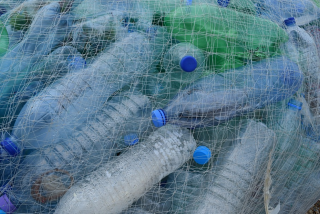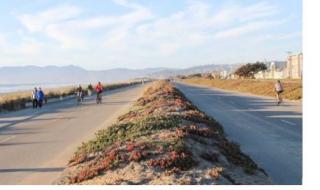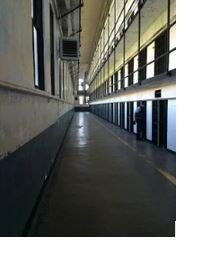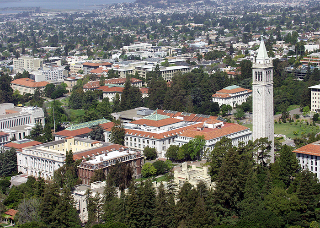Sacramento –Building on its record of environmental leadership, California enacted the country’s first minimum recycled content standards for plastic CRV bottles. Governor Newsom today signed AB 793 by Assemblymembers Phil Ting (D-San Francisco) and Jacqui Irwin (D-Thousand Oaks), requiring manufacturers to begin gradually phasing-in recycled materials when making plastic beverage containers. By 2030, the timeline ultimately reaches a 50% threshold - the highest in the world, surpassing the 30% mandate in the European Union (EU).
 “At the rate we were going, plastic waste would outnumber the fish in our oceans by 2050. The Governor’s signature means the time has come for companies to step up and help us be good environmental stewards. By boosting the market for used plastics, fewer containers will end up as litter,” said Ting.
“At the rate we were going, plastic waste would outnumber the fish in our oceans by 2050. The Governor’s signature means the time has come for companies to step up and help us be good environmental stewards. By boosting the market for used plastics, fewer containers will end up as litter,” said Ting.
The dwindling U.S. demand for recycled plastic has led, in part, to the tidal wave of recycling center closures in California, leaving consumers with fewer places to take their bottles and cans. At the same time, international markets are no longer interested in buying California’s recycled waste, leading to piles of recyclable plastic in our warehouses, landfills and environment. Data from CalRecycle shows that 12.7 billion CRV bottles were sold in the state last year, but 27% were not recycled – that’s 3.4 billion containers.
AB 793’s timeline is as follows and applies to plastic drink bottles sold in California, regardless of where the containers were made:

“Assemblymember Ting and I worked extensively with the industry stakeholders to ensure that this bill is both bold and workable. The result is the most aggressive recycled content mandate in the world for plastic bottles – 50% by 2030. Even the European Union, with its leadership on many environmental fronts, is only aiming for 30% by 2030. I commend the Governor for signing this audacious bill,” said Irwin.
The 50 percent recycled content requirement in AB 793 is the most ambitious closed loop recycling requirement in the world. With this signing, 50 percent is now the model for other states and nations, and should be the model for all plastic packaging in California going forward,” said Mark Murray, Executive Director of the environmental group Californians Against Waste.
Other states could potentially benefit from AB 793 if companies decide they don’t want to use one formula for plastic bottles sold in California, then reconfigure production lines for the rest of the country. If that’s the case, even more sustainable containers could end up in new markets.
Some brands have already moved in this direction. Naked Juice, for instance, has been using plastic bottles made with 100% post-consumer recycled content since 2010, proving the change can be done. Nestle Waters North America and Coca-Cola have also committed to using more recycled plastic over the next few years.
# # # # #
 Assemblymember Phil Ting (D-San Francisco) and State Senator Scott Wiener (D-San Francisco) sent a letter to local transportation officials in strong support of maintaining Great Highway’s closure to vehicles. Since April 8th, it has provided valuable open space for residents to socially distance outdoors during the COVID-19 pandemic, becoming vital to the physical and mental well-being of thousands of San Franciscans.(Photo Courtesy: SFGate.com)
Assemblymember Phil Ting (D-San Francisco) and State Senator Scott Wiener (D-San Francisco) sent a letter to local transportation officials in strong support of maintaining Great Highway’s closure to vehicles. Since April 8th, it has provided valuable open space for residents to socially distance outdoors during the COVID-19 pandemic, becoming vital to the physical and mental well-being of thousands of San Franciscans.(Photo Courtesy: SFGate.com)![]() Letter In Support of Keeping Cars Off the Great Highway
Letter In Support of Keeping Cars Off the Great Highway With the spread of coronavirus still a concern in California prisons, the state will now be able to take steps to ease overcrowding, while also expanding opportunities for second chances without increased risk to public safety. The Governor today signed AB 3234 by Assemblymember Phil Ting (D-San Francisco), giving judges the discretion to place first-time misdemeanor offenders in a diversion program. It also makes changes to the elderly parole program.
With the spread of coronavirus still a concern in California prisons, the state will now be able to take steps to ease overcrowding, while also expanding opportunities for second chances without increased risk to public safety. The Governor today signed AB 3234 by Assemblymember Phil Ting (D-San Francisco), giving judges the discretion to place first-time misdemeanor offenders in a diversion program. It also makes changes to the elderly parole program. To ensure California maximizes housing within its residential areas, homeowners associations (HOAs) will no longer be able to prohibit rentals under a bill signed by the Governor today. AB 3182 by Assemblymember Phil Ting (D-San Francisco) closes important loopholes that have enabled subdivisions and condominium complexes to shut out tenants.
To ensure California maximizes housing within its residential areas, homeowners associations (HOAs) will no longer be able to prohibit rentals under a bill signed by the Governor today. AB 3182 by Assemblymember Phil Ting (D-San Francisco) closes important loopholes that have enabled subdivisions and condominium complexes to shut out tenants.
 “At the rate we were going, plastic waste would outnumber the fish in our oceans by 2050. The Governor’s signature means the time has come for companies to step up and help us be good environmental stewards. By boosting the market for used plastics, fewer containers will end up as litter,” said Ting.
“At the rate we were going, plastic waste would outnumber the fish in our oceans by 2050. The Governor’s signature means the time has come for companies to step up and help us be good environmental stewards. By boosting the market for used plastics, fewer containers will end up as litter,” said Ting. 
